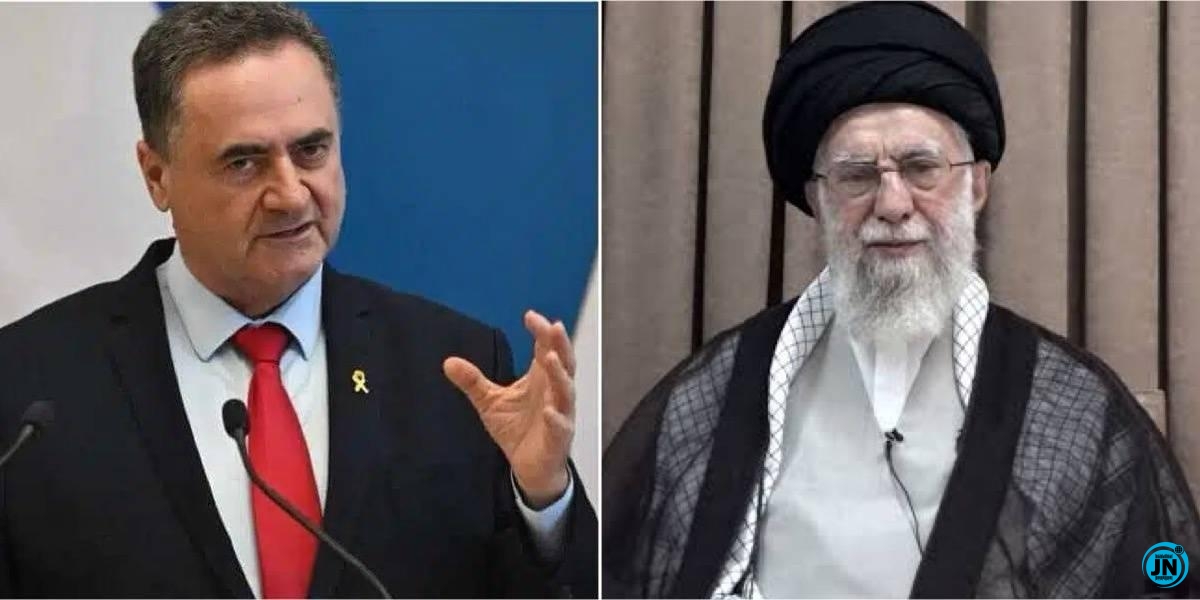
Israel’s Defence Minister, Israel Katz, has made a bold revelation regarding the recent military tensions with Iran. Katz stated that the Israeli Defence Forces would have assassinated Iran’s Supreme Leader, Ayatollah Ali Khamenei, if the opportunity had presented itself during the conflict.
In an interview with Kan, Israel’s public radio, on Thursday evening, Katz said: “If he had been in our sights, we would have taken him out.” He emphasized that locating and targeting Khamenei was a significant objective during the war, although it ultimately proved unfeasible.
Katz elaborated that Iran’s Supreme Leader had gone into deep hiding during the height of the hostilities, severing communication with his military leaders. “Khamenei understood the situation and went very deep underground. He even broke off contact with his military commanders, so in the end, it wasn’t realistic,” Katz revealed.
Speaking further in a televised interview with Channel 13, Katz acknowledged that direct efforts to assassinate top Iranian officials, including Khamenei, had ceased following the recently reached ceasefire. “There’s a difference between before the ceasefire and after the ceasefire,” he noted, drawing a clear distinction in operational posture.
During the war, Katz had publicly declared that Khamenei "can no longer be allowed to exist,” a controversial statement that surfaced shortly after reports claimed that the United States had vetoed an Israeli plan to carry out the assassination.
Katz also issued a stern warning to Khamenei, suggesting he remain hidden. “He should learn from the late Nasrallah, who stayed deep in the bunker for a long time,” Katz said, referencing former Hezbollah leader Hassan Nasrallah, who was killed by an Israeli airstrike in Beirut in September 2024.
The movements of the Iranian Supreme Leader have always been shrouded in secrecy, and it is widely known that he has not left Iran since ascending to power. Despite this, Katz confirmed that Israel maintains complete aerial superiority over Iranian airspace and is prepared to take further military action if necessary.
“We won’t allow Iran to develop nuclear weapons or threaten us with long-range missiles,” Katz firmly stated. He admitted that while Israel may not have precise intelligence on all of Iran’s enriched uranium stockpile locations, Israeli forces had succeeded in significantly damaging Iran’s enrichment infrastructure.
“The material itself was not the main target. What we neutralised were Iran’s enrichment capabilities,” he explained during a conversation with Channel 12. However, the actual extent of the damage remains a topic of international debate.
A leaked United States intelligence assessment indicated that Israel’s strikes had set Iran’s nuclear programme back by only a few months. Contrarily, Katz and several Israeli officials contend that it may take Iran several years to fully recover and rebuild its nuclear infrastructure.
The 12-day war between Israel and Iran erupted on June 13, 2025, after Israel launched a series of airstrikes targeting Iran’s suspected nuclear weapons development sites. The intense military campaign concluded with a ceasefire agreement on June 24, 2025, brokered with the involvement of global diplomatic stakeholders.

